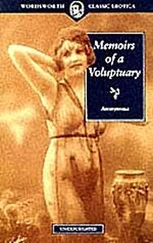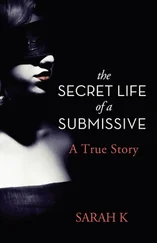Elizabeth Bisland - The Secret Life
Здесь есть возможность читать онлайн «Elizabeth Bisland - The Secret Life» — ознакомительный отрывок электронной книги совершенно бесплатно, а после прочтения отрывка купить полную версию. В некоторых случаях можно слушать аудио, скачать через торрент в формате fb2 и присутствует краткое содержание. Жанр: foreign_antique, foreign_prose, на английском языке. Описание произведения, (предисловие) а так же отзывы посетителей доступны на портале библиотеки ЛибКат.
- Название:The Secret Life
- Автор:
- Жанр:
- Год:неизвестен
- ISBN:нет данных
- Рейтинг книги:5 / 5. Голосов: 1
-
Избранное:Добавить в избранное
- Отзывы:
-
Ваша оценка:
- 100
- 1
- 2
- 3
- 4
- 5
The Secret Life: краткое содержание, описание и аннотация
Предлагаем к чтению аннотацию, описание, краткое содержание или предисловие (зависит от того, что написал сам автор книги «The Secret Life»). Если вы не нашли необходимую информацию о книге — напишите в комментариях, мы постараемся отыскать её.
The Secret Life — читать онлайн ознакомительный отрывок
Ниже представлен текст книги, разбитый по страницам. Система сохранения места последней прочитанной страницы, позволяет с удобством читать онлайн бесплатно книгу «The Secret Life», без необходимости каждый раз заново искать на чём Вы остановились. Поставьте закладку, и сможете в любой момент перейти на страницу, на которой закончили чтение.
Интервал:
Закладка:
Dr. Friederich Scholz, in his recent volume upon "Sleep and Dreams," gives an example of rapid effort of the mind to explain the sensations felt by the sleeping body:
"I dreamed of the Reign of Terror, saw scenes of blood and murder, appealed before the Revolutionary Tribunal, saw Robespierre, Marat, Fouquier-Tinville, all the personages of that time of horrors, argued with them, was finally, after a number of occurrences, condemned to death, was carried to the place of execution on a cart through enormous masses of people, was bound by the executioner to the board. The knife fell and I felt my head severed from my body. Thereupon I awoke and found that a loosened rod of the bed had fallen on my neck like the knife of the guillotine, and this had happened, my mother assured me, at the very moment when I awoke."…
That the mind should, merely because of the body's sleep, be able to create a whole scene of a terrible drama with a rapidity impossible when all the functions are awake and active is incredible. The only function of the brain capable of this lightning-like swiftness of vision is memory . To create requires a certain effort, consumes a certain period of time, but a scene once beheld, an adventure once experienced and vividly impressed upon the memory, can be recalled in its minutest details in a period of time too short to be reckonable.
That the sensitive plate of the brain never loses any clear picture once received, has been demonstrated beyond doubt. The picture, the sensation, may be overlaid and hidden for a long time beneath the heaps of useless lumber that the days and years accumulate in the mind's storehouse, but need or accident, or a similarity of circumstance, will bring the forgotten belonging to light – sometimes with startling effect. There is the well-known instance of a girl who, during an attack of fever delirium, spoke in a language that no one about her could understand. Investigation proved it to be Welsh – a language of which, both before and after her illness, she was totally ignorant. Further investigation showed that being born in Wales she had understood the tongue as a very little child, but had afterwards completely forgotten it.
It is commonly known that in the struggle of the body against death by water, the memory, stirred to furious effort, produces all her stores at once – probably in the frantic endeavour to find some experience which may be of use in this crisis.
It is often broadly asserted that the memory retains each and every experience which life has presented for its contemplation, but this is hardly true. The memory makes to a certain extent a choice, and chooses oftentimes with apparent caprice. To demonstrate the truth of this, let one endeavour to recall the first impression retained by his childish mind and it usually proves to be something extremely trivial. My own first clear memory is a sense of the comfort to my tired little two-year-old body of the clean linen sheets of the bed at the end of a perilous and adventurous journey, of whose startling incidents my memory preserved only one. Often this capricious faculty will seize upon some few high lights in a vivid picture and reject all the unimportant details. As a rule, however, it is the profound stirring of the emotions which wakes the memory to activity. A woman never forgets her first lover. A man to the end of his life can recall his first triumph, or his most imminent danger, and a trifle will often, after the lapse of half a century, fill the eye with tears, make the cheek burn, or the heart beat with the power of the long-passed emotion, preserved living and fresh by the memory.
That the memory uses in sleep the material it has gathered during the day, and during the whole life, no dreamer will deny; but here again it is capricious; some parts of the day's – the life's – experiences are used, others rejected. Added to these natural and explicable possessions of the memory are a mass of curious, conflicting, tangled thoughts, which are foreign to our whole experience of existence, and which, when confused with our own memories, makes of our nights a wild jumble of useless and foolish pictures. If it be true that it is by some outward impression upon the senses that dreams are evoked, that it is the endeavours of the somnolent mind to explain to itself the meaning of a noise, a light, a blow, which creates that delusion we call dreams, then it is not upon the stores of our own memories alone that the brain draws for material, since the falling rod awoke in the mind of Dr. Scholz a picture of the French revolution, which he had never seen, and different in detail and vividness from any picture his reading had furnished.
Heredity is an overworked jade, too often driven in double harness with a hobby; but the link between generation and generation is so strong and so close that none may lightly tell all the strands of which it is woven, nor from whence were spun the threads that tie us to the past. It is very certain, despite the theories of Weismann, that the acquired characteristics of the parent may be transmitted to the child. The boy whose father walked the quarter-deck is, nine times out of ten, as certain to head for salt water as a seagull born in a hen's nest. The victim of ill-fortune and prisoner of despair who breaks the jail of life to escape fate's malice leaves a dark tendency in the blood of his offspring, which again and again proves the terrible power of an inherited weakness. Women who lose their mind or become clouded in thought at childbirth – though they come of a stock of mens sana – transmit the blight of insanity to their sons and daughters both; and not only consumptive tendencies and the appetite for drink are acquired in a lifetime and then handed on for generations, but preferences, talents, manners, personal likeness – all may be the wretched burden or happy gift handed down to the son by the father. Who can say without fear of contradiction that the memories of passions and emotions that stirred those dead hearts to their centre may not be a part of our inheritance? The setting, the connection, is gone, but the memory of the emotion remains. Such and such nerves have quivered violently for such or such a cause – the memory stores and transmits the impression, and a similar incident sets them tingling again, though two generations lie between.
Certainly animals possess very distinctly these inherited memories. A young horse never before beyond the paddock and stables will fall into a very passion of fear when a snake crosses his path, or when driven upon a ferry to cross deep, swift water. He is entirely unfamiliar with the nature of the danger, but at some period one of his kind has sweated and throbbed in hideous peril, and the memory remains after the lapse of a hundred years. He, no more than ourselves, can recall all the surrounding circumstances of that peril, but the threatening aspect of a similar danger brings memory forward with a rush to use her stored warning. When the migrating bird finds its way without difficulty, untaught and unaccompanied, to the South it has never seen, we call its guiding principle instinct – but what is the definition of the word instinct? No man can give it. It but removes the difficulty one step backward. Call this instinct an inherited memory and the matter becomes clear. Such memories, it is plain, are more definite with the animals than with us; but so are many of their faculties, hearing, smell, and sight.
Everyone has felt many times in his life a sense of familiarity with incidents that have had no place in his own experience, and has found it impossible to offer any explanation for the feeling. Coming suddenly around a turn of a hill upon a fair and unknown landscape, his heart may bound with a keen sense of recognition of its unfamiliar outlines. In the midst of a tingling scene of emotion, a sensation of the whole incident being a mere dull repetition will rob it of its joy or pain. A sentence begun by a friend is recognized as trite and old before it is half done, though it refers to matters new to the hearer. A sound, a perfume, a sensation, will awaken feelings having no connection with the occasion.
Читать дальшеИнтервал:
Закладка:
Похожие книги на «The Secret Life»
Представляем Вашему вниманию похожие книги на «The Secret Life» списком для выбора. Мы отобрали схожую по названию и смыслу литературу в надежде предоставить читателям больше вариантов отыскать новые, интересные, ещё непрочитанные произведения.
Обсуждение, отзывы о книге «The Secret Life» и просто собственные мнения читателей. Оставьте ваши комментарии, напишите, что Вы думаете о произведении, его смысле или главных героях. Укажите что конкретно понравилось, а что нет, и почему Вы так считаете.












